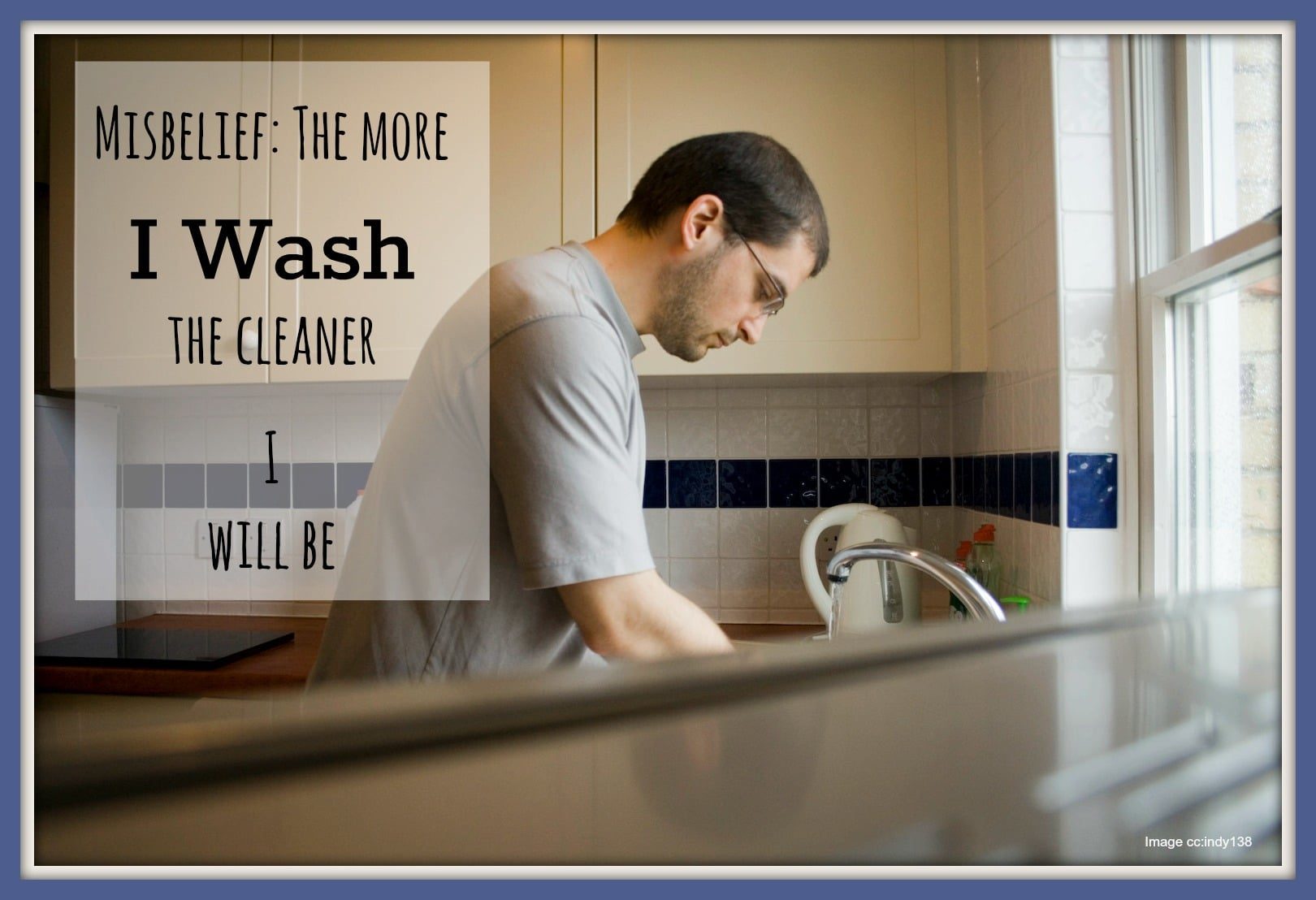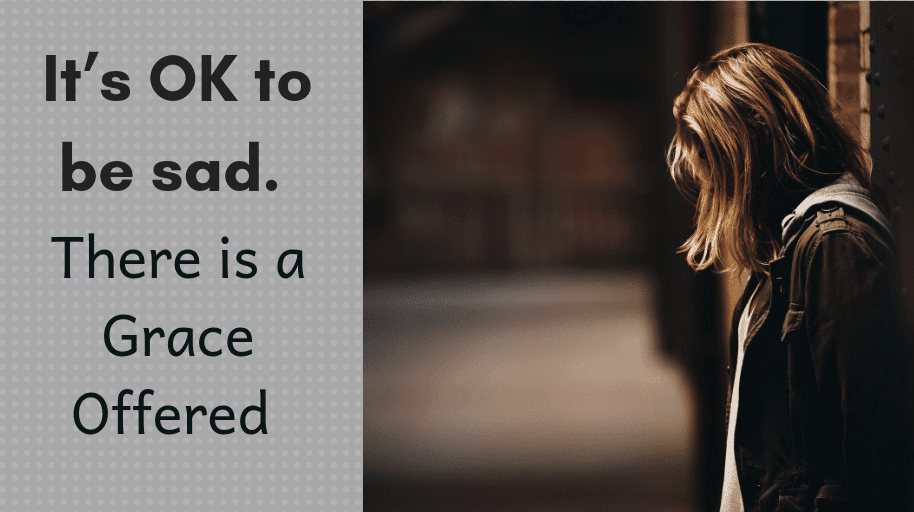Do you hate greasy dishes?
They frustrate me.
You have hot water with detergent in the water, you wash that pot or plastic container from the Indian takeaway, and out it comes with a smear of grease.
So what do you? Well, you get the detergent bottle and squirt a big dollop into the dish and scrub away, and hopefully, after another rinse, it comes out clean.
Yet again though there is that little bit in the corner that is missed. Repeat again and again.
Eventually, it becomes clean or you give up, throw the container in the bin, or sneak it back into the cupboard and let it be someone else’s problem!
Something needs to cut into the grease and loosen it.
Enter stage left into the grease trap of my life ‘The Protestant Work Ethic’ emphasizing hard work and diligence as a methodology of my purification. The more I clean the cleaner I will be.
I remember the young man trapped in the ritualistic habit of handwashing. With Obsessive-Compulsive Disorder, he went through a bar of soap in a day. His hands were never clean enough he washed and washed in a particular way until they were raw.
We come to God and others with a voice in our hearts – ‘What do I have to do to be acceptable to you’.
God is not like that. God welcomes beggars and abusers, prisoners and politicians, suited metrosexuals and flannel-wearing farmers.
There must be something we can do to get on the right side of God.
Carmelite nun Ruth Burrows writes this
‘The proud cannot bring themselves to hold out empty hands to God,
they insist on offering virtues, good works, self-denials,
anything in order not to have nothing.
They want to be beautiful for him from their own resources,
whereas we are beautiful only because God looks on us and makes us beautiful.’ Ruth Burrows
Enter a man who was truly beautiful.
Perfect in fact, this man had done nothing wrong.
There was no guilt he had to carry of past regrets.
No shame, no shadows, no skeletons in the closet hidden behind the Sunday suit yet he takes the eternal punishment for what I have done. He shoulders the cross of your consequences.
God does not ‘overlook’ sin; that would mean not taking human beings seriously as personal beings in their very culpability; and that would mean no re-creation of the person, and therefore no re-creation of community.
But God does take human beings seriously in their culpability, and therefore only punishment and the overcoming of sin can remedy the matter.
Both of these have to take place within concrete time, and in Jesus Christ that occurs in a way that is valid for all time.
He takes the punishment upon himself, accomplishes forgiveness of sin, and, to use Seeberg’s expression, stands as surety for the renewal of human beings.
Christ’s action as vicarious representative can thus be understood from the situation itself. Dietrich Bonhoffer
Christ lived a perfect life on my behalf. I can’t do anything more to gain God’s approval, Christ has done it all.
No more brownie points to earn to get me over the line.
All I have to do now is surrender myself into the welcoming loving arms of God.
Big, open, wide, and warm are the arms of love extended to me. Christ has made it possible, there is nothing more I can do.
There is grease in my life and nothing I can do can get rid of it.
God cannot give himself to us unless
our hands are empty to receive him. Ruth Burrows
Christ comes and washes it away with self-sacrificial love.
Questions to Consider and leave a comment.
- How much does the Protestant work ethic stifle a growing of grace, and acceptance of Christ’s performance on our behalf?
- What does believing ‘The more I clean the cleaner I will be” set you up for?
- Do you have a ‘brownie point’ attitude? We have to earn so many points to gain God’s approval. Do you have a similar attitude towards yourself and others? Are you always putting yourself down because you supposedly don’t ‘make the grade’?
Barry Pearman
Photo Credit: indy138 via Compfight cc





